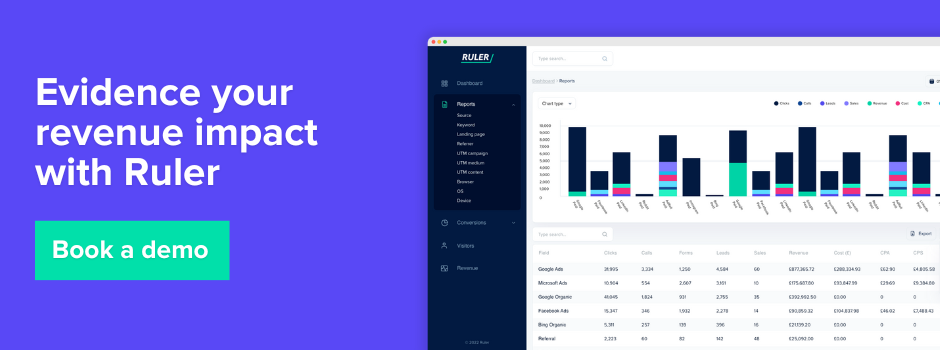Consider these marketing analytics tools and invest in a solution that promises to give a more complete view of your marketing performance and revenue impact.
Relying solely on traditional analytics tools is no longer enough.
Google Analytics, once the go-to platform, is now being scrutinised for its limitations in providing comprehensive insights into the effectiveness of marketing strategies.
While it fulfils its job of tracking visits and web metrics, it falls short when it comes to revealing the intricate details of how marketing translates into tangible results.
And the challenges of marketing measurement are intensifying with the seismic shift caused by the death of third-party cookies. This change will bring forward new hurdles in accurately assessing marketing effectiveness.
Fortunately, marketers are realising the need for more advanced marketing analytics tools that go beyond surface-level metrics and align with evolving data privacy regulations.
In this blog, we’ll explore the top solutions for marketing analytics and discuss how they can provide a deeper understanding of your performance.
In this post, we’ll discuss:
💡 Top marketing analytics tools
Below are our top choices for marketing analytics:
Ruler Analytics: Forgive us for putting ourselves at the top, but hear us out. Ruler breaks free from traditional analytics and attribution. It tracks first-party cookie click-path data and uses statistical machine-learning impression modelling, to show how your marketing impacts revenue. See everything you can discover in Ruler.
Mixpanel: Helps marketers in seeing and understanding user journeys, allowing them to make smart, data-driven choices for boosting awareness and conversions.
Kissmetrics: A person-based analytics product that helps you identify, understand, and improve the campaigns and metrics that drive your revenue.
Marketing analytics tools essentially monitor and compare the performance of your marketing efforts across multiple channels, campaigns, landing pages and more.
Related: What is marketing analytics?
They allow you to identify patterns within data that help you make smarter marketing decisions about where to spend your time and budget.
The goal for almost any marketer is to maximise the effectiveness of marketing activities and justify investments.
With marketing analytics tools, marketing teams can both improve their efforts and prove their worth.
The best marketing analytics tools allow you to track:
While there are many different types of marketing analytics tools, most share the same goal.
That is to help you reduce costs and increase profitability of your marketing efforts.
Generally, marketing analytics tools fall under the following categories but aren’t limited to:
💡 See Ruler for yourself
Ruler Analytics is a good example of a marketing attribution tool. It tracks users through their full customer journey and attributes actual revenue back to your marketing touchpoints whenever they close into a deal.
See how Ruler’s Analytics tracks marketing effectiveness
There’s a lot to consider when searching for the right web analytics tool you should try.
Below, we’ve listed some factors that you can take into consideration to help find the right marketing analytics tools and software for your business.
There isn’t a one-size-fits-all when it comes to marketing analytics tools, but to make things easier for you, we’ve shortlisted some solutions for you to consider.
Ruler is a marketing measurement tool that enables businesses to get the full picture of their customer journeys. It works by tracking each and every visitor over multiple sessions, traffic sources, keywords and more.
Related: How to view full customer journeys in Ruler
When a website visitor converts, whether that’s via phone call or live chat conversation, Ruler will send all of the data it has captured about your lead to your CRM or sales tracking system.
Naturally, your leads will start to progress through the pipeline as they’re nurtured by your marketing and sales teams. When a lead converts into a deal or sale, the customer’s information, such as the revenue amount and marketing data, is sent back to the Ruler database.
Related: How Ruler attribution revenue to your marketing
This information is then attributed across the customer’s touchpoints, allowing you to see which marketing channels are having the greatest impact on your revenue metrics and goals.
Ruler integrates with almost any tool, including Google Ads and Analytics. When an opportunity is marked as closed or won in your CRM, Ruler can automatically send the value of a lead or sale to your acquisition reports in Google Analytics.
Here, you can see how each channel, campaign, ad and landing page is working to drive revenue for your business.
That’s not all. Ruler also includes machine learning impression attributon. This helps you understand the impact of your invisible touchpoints (e.g. ad views) on pipeline generation and revenue.
It uses aggregated data to identify patterns and correlations between marketing activities and revenue, allowing marketers to make more accurate budget allocations to increase conversions and ROI.
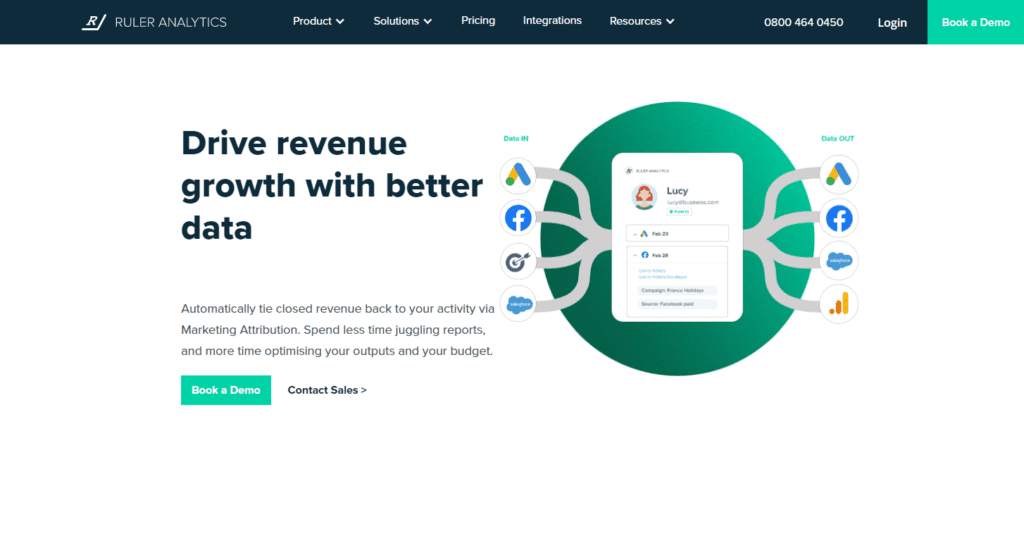
Our analytics tool offers many features that let you drill into your marketing effectiveness and better understand your customer journeys.
Pricing for Ruler starts at £199 a month, with plans based on features and number of website visitors. You can save 20% by paying annually and there are special rates for agency partners.
💡 Get a deeper look
Ruler is one of the best solutions to track your marketing effectiveness and impact on pipeline generation. Don’t just take our word for it. See how Ruler has helped Totalmobile increase ROAS by 23% or book a demo to see it in action.
Book a demo and generate better insights
Adobe Analytics offers all the functionality you’ll need, including advanced statistics and machine learning, to help you and your team understand just how effective your marketing is at driving traffic and conversions.
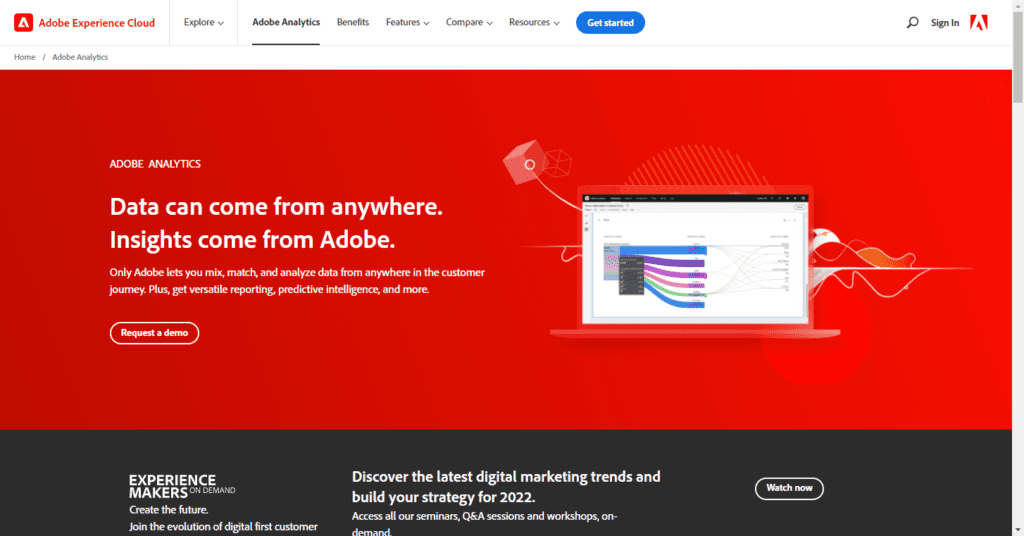
Price: Available upon request, but expect to pay $30,000 to $100,000/year
Features: Multichannel data collections, customer variables, offline data integration, tag management, data warehouse, data feeds and more.
Amplitude Analytics is another powerful analytics platform designed to help businesses extract insights about user behaviour from website data. It includes real-time user analytics, including retention, funnels, revenue analysis and flexible user segmentation.
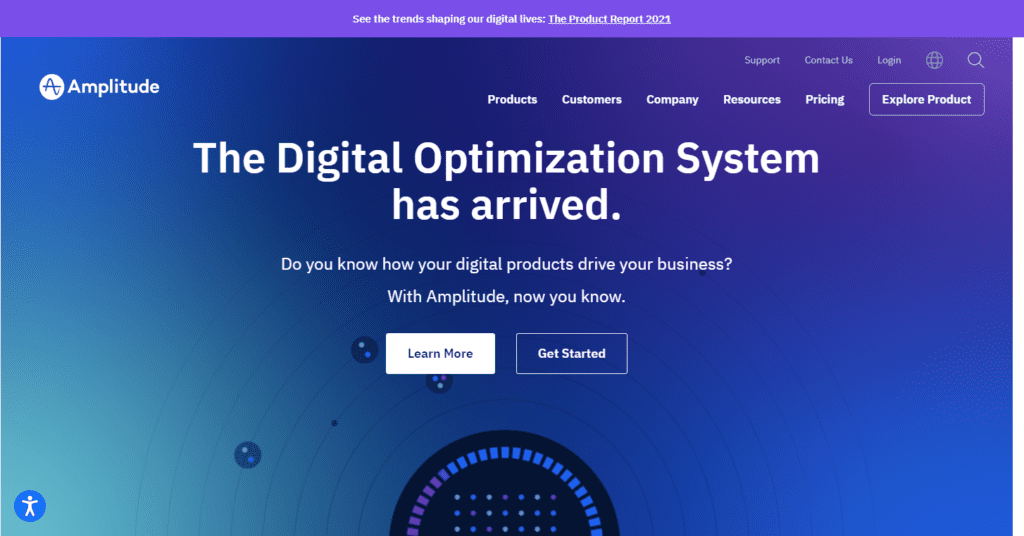
Price: Available on request
Features: Behavioral reports, predictive analytics, collaboration tools, custom solutions and event volume and more.
Cyfe offers an all-in-one analytics dashboard solution using real-time data. It helps make your team more transparent and gives everyone in the business a chance to analyse data like trends classification and user behaviour.
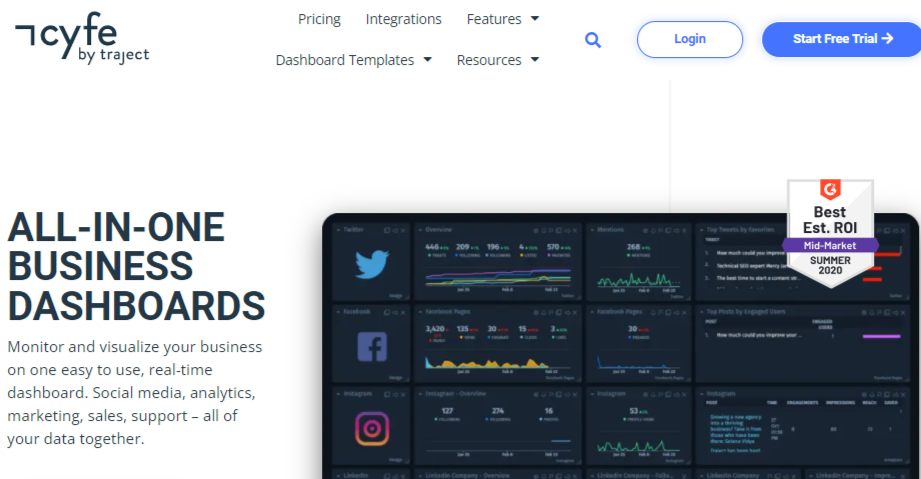
Pricing: From $29/month
Features: Unlimited history, custom themes, custom logo, unlimited data exports, embedded analytics and more.
Fathom is a powerful website analytics designed to protect your digital privacy. It is a cookie-less platform making your sensitive information safe from any hackers or third-party tools. They offer a 7-day free trial, which is enough time to test out the versatile marketing analytics and privacy tool.
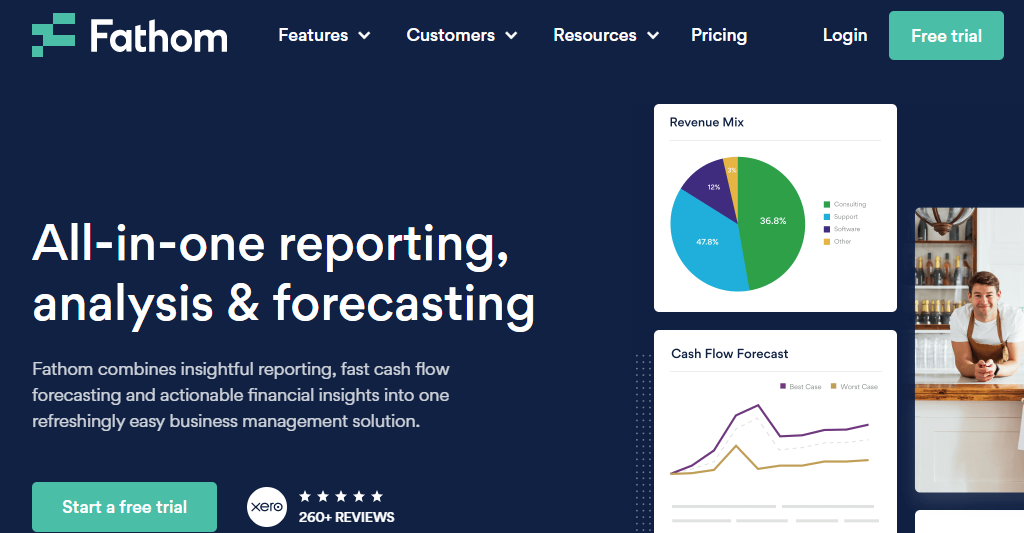
Price: From $14 per month
Features: Management reporting, consolidated reporting, cash flow forecasting, financial analysis.
Funnel is a data collection tool that turns marketing and advertising data into automated reports to help you make smarter decisions about your budgets and targeting. It lets you quickly review your marketing data in one place, allowing you to understand how each channel contributes to your business goals.
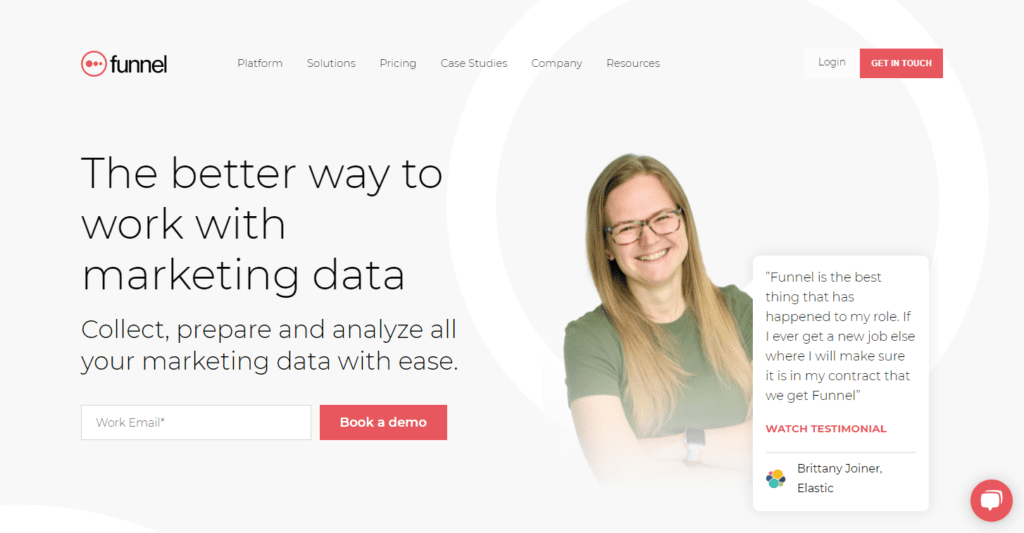
Price: From £319 per month
Features: URL auto tagging, ad account organisation, excel reports, automatic data synchronisation, cross-channel analytics and more.
Heap captures all user interactions from apps on the Web and iOS without requiring the use of any conversion tracking code. It allows you to take a granular approach to measurement and lets you drill down into data on an individual basis.
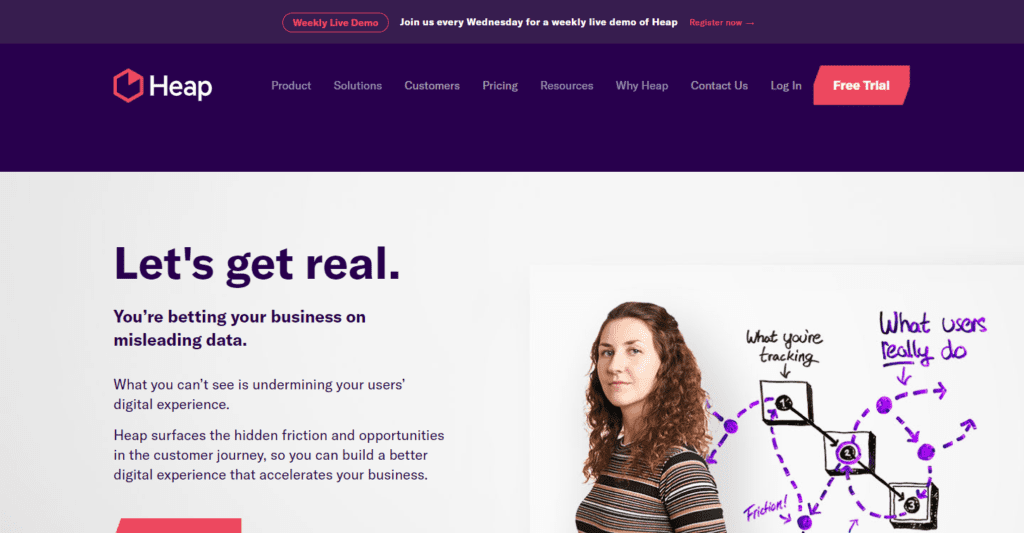
Price: Freemium available
Features: Ad-hoc analytics, reporting alerts, event visualiser, data dictionary, autocapture and more.
KissMetrics is a powerful behavioural analytics tool that provides key insights about user interactions on your website. It assigns unique website visitor IDs and tracks interactions such as clicks, pages visited and conversions.
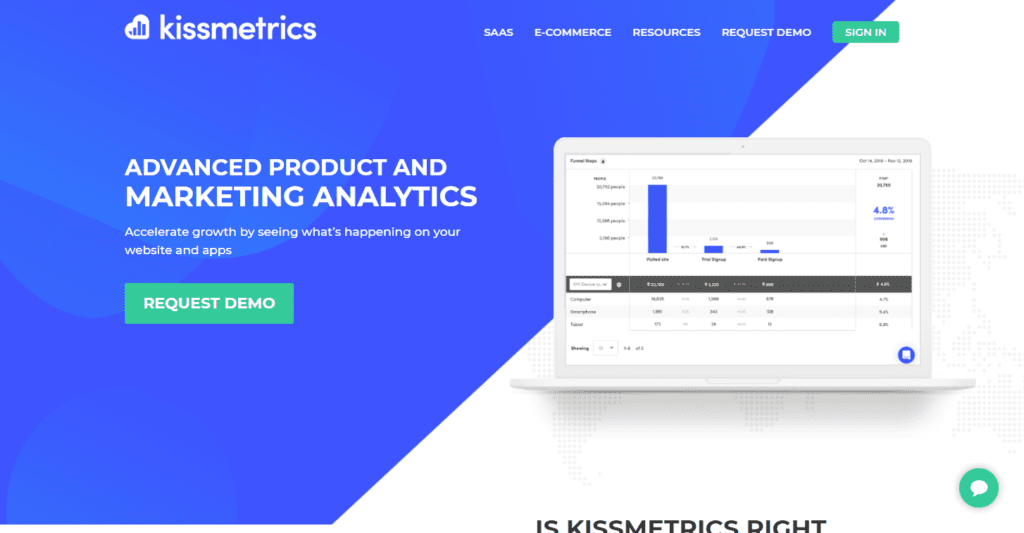
Price: From $299.00 per month
Features: Management of data, events, reporting, campaigns, customer profiles, accounts, billing and more.
Leadfeeder allows you to identify which organisations are visiting your website, even if those visitors never filled out a contact form or sent an email. It recognises firms that visit your site and then collects contact information from individual visitors at that company.
You can even sync leads to your CRM and monitor which web sites they’re visiting, allowing you to reach out to them with laser-targeted sales campaigns.
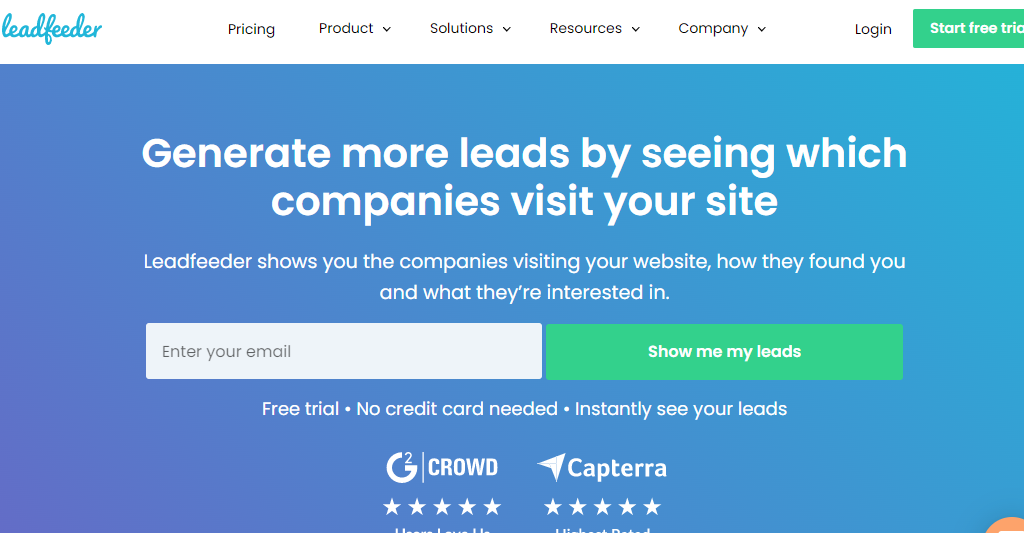
Price: From €79 per month
Features: Number of leads, company details, visit details, CRM integrations, powerful filtering.
Looker is a powerful business intelligence (BI) tool that lets you track customer interactions across all touchpoints. It offers a user-friendly workflow that lets you create data visualisations to help you understand your customers more interactively.
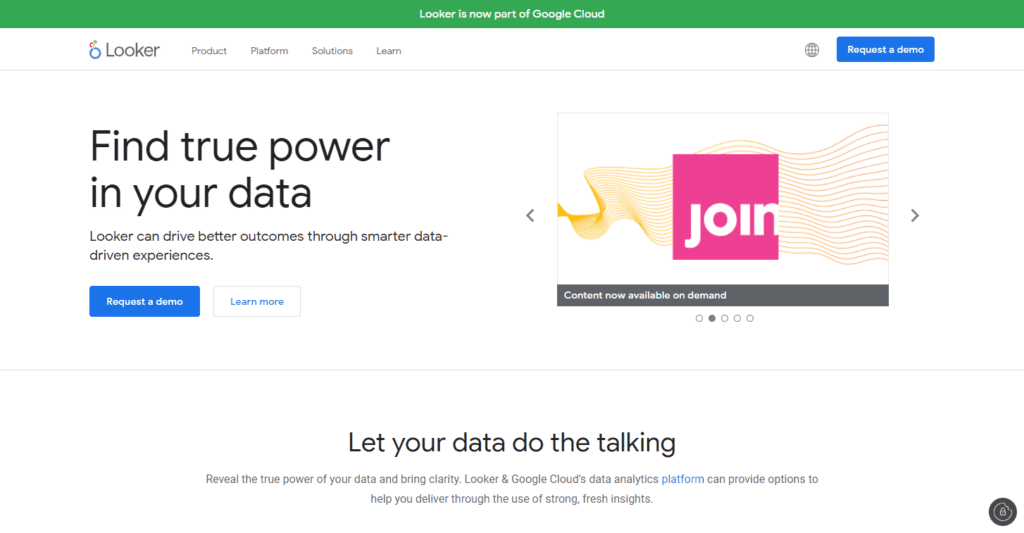
Price: Available upon request, but expect to pay $3,000+/month
Features: Multichannel tracking, predictive analytics, data visualization, campaign activity and more.
Matomo is easy to set up and includes many of the advanced features you’d expect in an analytics platform, such as conversion tracking, real-time data and more. Matomo is an open platform that you can customise with plugins to make it your own.
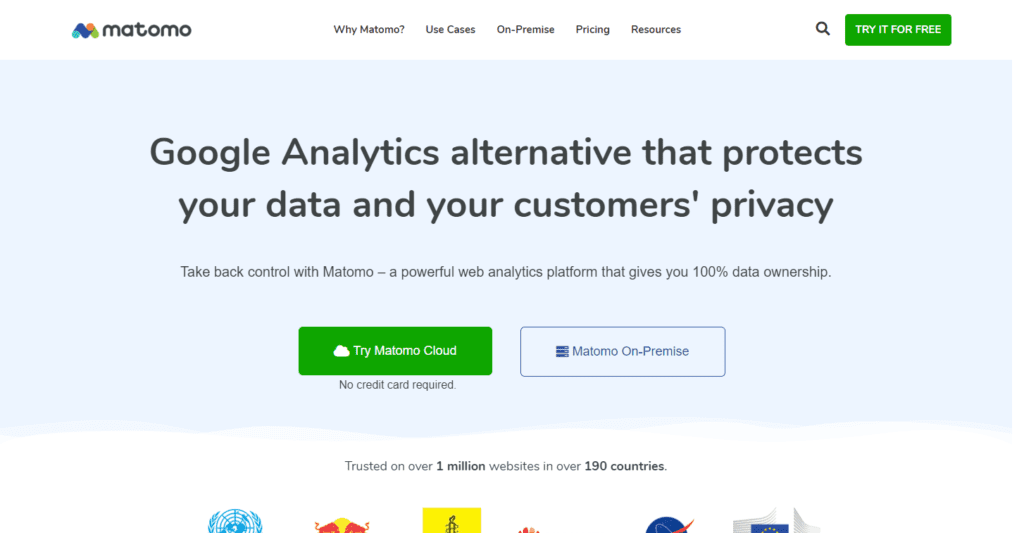
Price: Available upon request, but expect to pay $3,000+/month
Features: Custom event tracking, segmentation, conversion tracking, real-time reporting, custom reports, dashboards and more.
Mixpanel is another great analytics tool that helps you better understand your users. It provides detailed reports into product usage and user behavior that you can use to build better products.
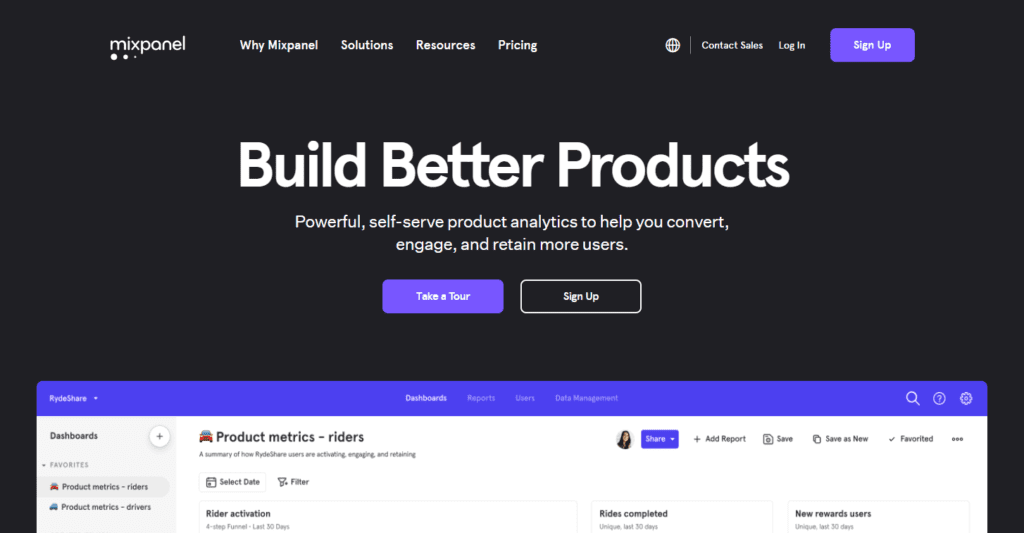
Price: Available upon request, but expect to pay $3,000+/month
Features: Standard and custom event tracking, real-time reporting, interactive reports, team dashboards and alerts
Oribi is another analytics tool that allows you to track user conversions, engagements and sales without the use of complex code on your website. Unlike Google Analytics, Oribi breaks your data down into actionable insights, rather than simply displaying it and leaving you to do the reporting work.
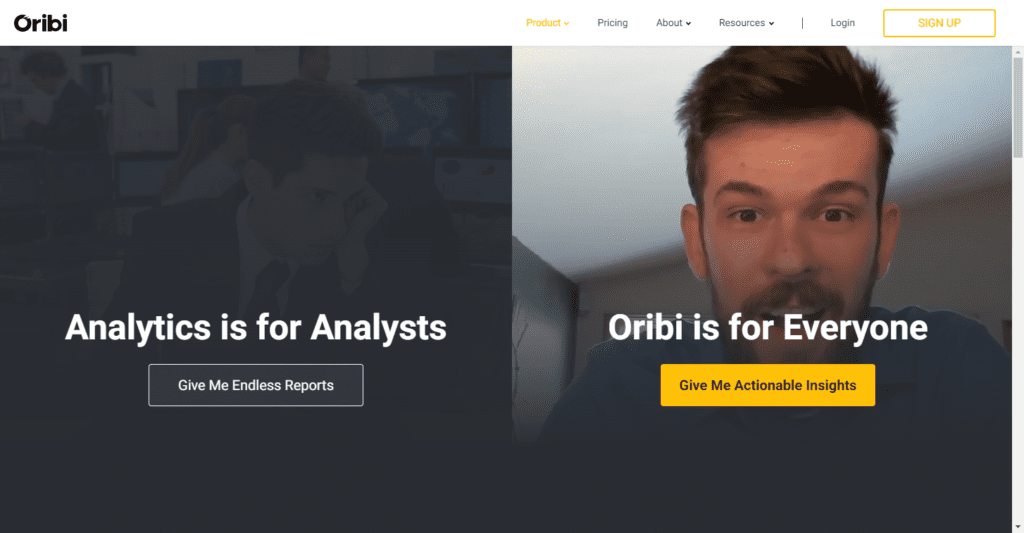
Price: Available upon request, but expect to pay $3,000+/month
Features: Insights, event tracking, funnels, correlations, visitor tracking, attribution
Plerdy is one alternative to Google analytics. You can apply it instead of Google analytics or integrate the two solutions for data sharing. It optimises the work of your staff and provides data to minimise bounce rate, optimise your website funnel, lower cart appointment, and more.
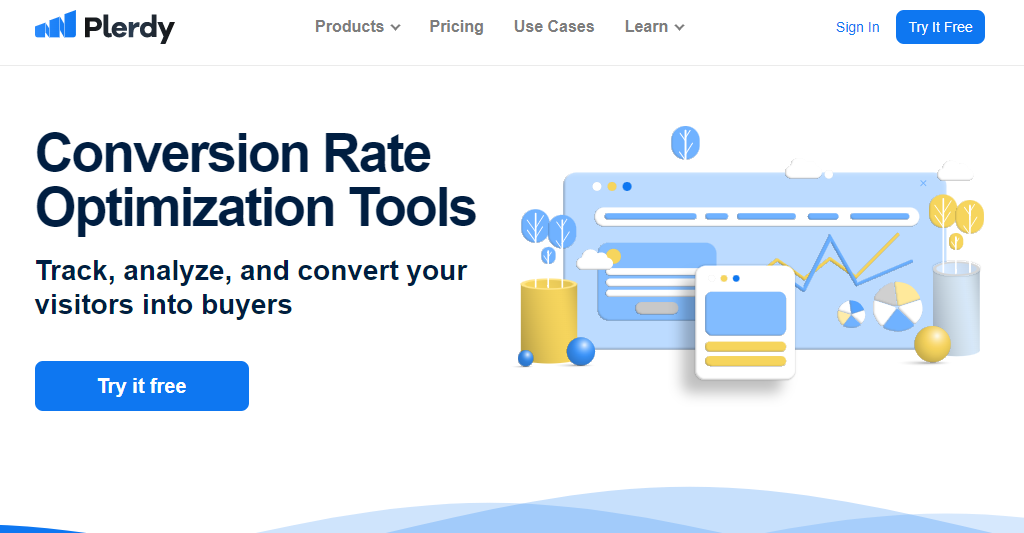
Price: Freemium available
Features: Heat mapping, SEO checker, session replay software, event tracking, sales performance.
Woopra allows you to track the visitors to the website as they interact with chat support features or via marketing emails. It follows your visitors as they navigate through the website and allows you to record when and where they take specific actions.

Price: Freemium available
Features: Journey reports, trend reports, cohort reports, retention reports, behavioural segmentation
Finding the right marketing analytics tool is an essential task and should be given much consideration.
So, we hope the list above is enough to kickstart your search.
Most tools in this list are comparable to Google Analytics. They’re focused on tracking the behaviour of your website visitors rather than building a picture of your customer journeys and marketing impact.
Ruler, however, brings more to the table by tracking the movements of your individual visitors and helps coordinate your online and offline touchpoints.
Ready to upgrade your marketing analytics tool? Book a demo of Ruler and gain access to customer journey data and improve the quality of your reporting.
